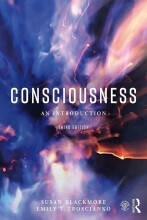What's the problem? - Consciousness in psychology
13 important questions on What's the problem? - Consciousness in psychology
What is the history of psychology?
- 18th century: the term psychology first appeared, to describe the philosophy of mental life
- 19th century: psychology became a science, based on empirical data
What are ‘The principles of Psychology?’
Consciousness was at the heart of his psychology. He pointed out that consciousness can be abolished by injury to the brain and altered by alcohol and drugs. He assumed that a certain amount of brain physiology must be included in psychology.
What is ‘a stream of consciousness’?
- Higher grades + faster learning
- Never study anything twice
- 100% sure, 100% understanding
Who is Herman von Helmholtz?
Who is being called the father of experimental psychology and why?
According to Wundt, which kind of physical elements exist?
- Sensory elements: elements/simple sensations, such as tones, heat, light
- Affective elements: simple feelings; sensory (dis)pleasure that might accompany the simple sensations
-> every conscious experience depend on a union of these two types
What happened from phenomenology to behaviourism?
What is behaviourism and who was the founder?
1913 – John Watson. He said: psychology is a purely objective, experimental branch of science. He was inspired by Pavlov
Which kind of conditioning do exist?
- classical conditioning: repetition increases the probability of various behaviours (Pavlov)
- operant conditioning: learning by being rewarded or punished for the actions (Skinner)
What happened from behaviourism to cognitive psychology?
What is cognitive psychology?
When and why did consciousness came back?
What is radical empiricism?
The question on the page originate from the summary of the following study material:
- A unique study and practice tool
- Never study anything twice again
- Get the grades you hope for
- 100% sure, 100% understanding
































